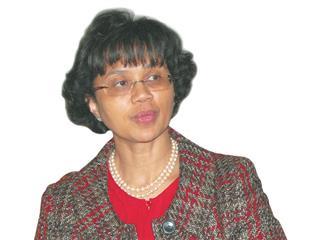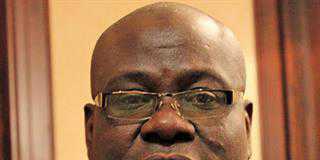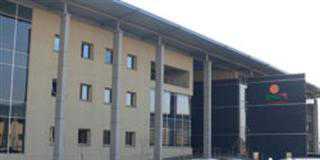
The result has been a refreshingly open communications approach that runs counter to attempts elsewhere in government to mute the media with tribunals and secrecy laws. Taking advantage of this, Sean Christie enjoyed a candid conversation with the minister in Johannesburg recently.
Tina Joemat-Pettersson on Agri SA and TAU’s farmworker summit walk-out:
Our commercial sector must develop a more open approach to its challenges. They can’t operate in a laager any longer. They must understand what’s happening in our country, on our continent, and globally. We’re signatories to global conventions.
If we don’t want to be fingered as the bad guys, then we must do something about the way we function and we must change perceptions. You can’t come to a farmworkers summit and have 1 100 workers speaking about their living conditions, with testimonies about their sub-human conditions, and then say, “We want the name of one farmer who’s abusing workers because there’s no such thing happening”. We can’t live in denial any longer.
On the precarious state of agricultural research:
Fixing the Agricultural Research Council is going to be more expensive than building a new structure, but when we fix it, we don’t want to do a patchwork job. We want modern technology that can perform cutting-edge research, because if the state is responsible for food security, then the level of state research must allow us to plan for climate change and diseases like Rift Valley fever (RVF).
Research has long-term rewards and immediate sacrifices, and the public works department has come on board to assist us in building a new structure. Currently there’s no research happening. Budgets are too small and facilities and staff are insufficient, so there’s a great need not just to change the oil of this engine, but to overhaul it entirely.
On disaster management in the sector:
We must broaden the definition of what constitutes a disaster. We only have a disaster plan for drought. Floods are disasters too, but we don’t recognise that in agriculture. Frost as well – there’s been a huge crop failure in Limpopo due to frost, but we can’t declare it a disaster as we don’t have policy or legislation that allows us to do that.
There must be a policy overhaul, and this is part of the policy review we’re having. The revision is intensive, so I’m contemplating bringing in outside experts to assist. We can’t afford to be stuck on this – if we need a Mr or Mrs Fix-it with the right tools, then we must bring them on board.
On the hold up on development of public/private partnerships, such as the R3 billion Futuregrowth Agri-Fund the minister claimed her department had partnered with in April this year:
You can’t throw money at a problem if you don’t have an environment for it to grow in. There’s no way I’ll take private-sector money into a situation I know isn’t going to be successful. If you use private-sector money and your groundwork isn’t correct, the risk of failure is too high.
I want to mitigate the risks with that fund. The policy climate for land reform must be correct first. When the policy climate has nationalisation as the one extreme, and willing buyer/willing seller at the other extreme, it won’t work. But it won’t be long before we find that balance – and it must come from all stakeholders, rural development in particular, who must now come to the party with their green paper.
On improved coordination between ministries that President Jacob Zuma promised Agri SA recently:
Since Zuma’s comments it’s been much easier. We have cabinet committees every second week, cluster meetings and collective outputs in our performance agreements, plus our delivery forums are actually there to help us deliver on certain outputs that have been carefully planned together.
So now there’s an overlap between agriculture, trade and industry, land reform and also Ebrahim Patel, economic development minister. The National Planning Commission doesn’t report to me, they report to Patel, so instead of waiting for him to present something that doesn’t bode well for agriculture, we lobby him to assist us in our growth. Patel presented a document to the last cabinet in which almost a chapter was dedicated to agriculture. Previously, agriculture wasn’t even on the agenda.
On the need to protect rich agricultural land from mining:
We’re quantifying land for agricultural production and food security, so we can say “this is the number of hectares that should be protected if we want to sustain national food security”. We must look at what the situation is going to be a couple of hundred years from now, as agriculture is a long-term cyclical commodity.
We haven’t come to a number of hectares yet. To do this we need the land affairs department to finish its land audit. If we don’t have the relevant information, how will we know what we have or take decisions on what we must protect? The agriculture department’s land-use management ambit is being tightened up.
Instead of allowing a junior-level official to sign a permit for alternative use of land, which has been the case in the past, it will, at the very least, become the director general’s responsibility.
On the controversial appointments of Dr Phil Mohlahlane (implicated in the theft of millions from the Land Bank) and of Bigman Maloa:
Provinces do their own appointments over which we have no power or jurisdiction. Dr Mohlahlane is a provincial department appointment, so our direction would be in an advisory capacity, we can’t be prescriptive. Maloa is there on a contractual basis, he isn’t appointed to the department, and while he’s there any company could headhunt him and face the risk!
Our constitution presumes you’re innocent until found guilty, so you can’t be prejudiced in any job application. But we’re not going to stop investigating these individuals, or sweep irregularities under the carpet. The Land Bank investigations are at an advanced stage, and will be completed.
On the opening up of foreign markets:
South Africa has asked to be part of the BRIC countries (Brazil, Russia, India and China), as we need alternative markets to the EU and US. Currently we only export minimal citrus and other fresh produce to Russia. To China we export mainly luxury goods, which is actually a misstep as China, which has become a nett importer, needs bulk food produce.
The aim of our trip to China at the end of August is to broaden markets for South Africa, and to bring down the sector’s input costs. If we mass produce it would bring down our input costs, which are too high primarily because we’ve failed at playing the global market.
In the economic downturn, for example, we didn’t take advantage of the pinch in other agricultural economies. When there’s a lull, say, in meat production in Australia and New Zealand, you must be more competitive to outperform their producers and secure market share – that’s how the market works.
With Brazil, we hope to partner especially on biofuel technology. With Russia we’ve negotiated a memorandum of understanding on our sanitary and phytosanitary requirements for plant material, so that material currently subject to quarantine is accepted. With China we’ve been discussing export of South African goods, especially maize. Opportunity is there for agriculture to have access to Chinese markets, which we didn’t really understand in the past.
On China’s ban of South African wool after the RVF outbreak:
I’ll discuss this with my Chinese counterpart when I visit. We must ensure our farmers aren’t being penalised due to RVF, as that isn’t the international convention.
On dispersing the grain surplus:
Our maize surplus is 3,54 million tons, and if we don’t export it, only 50% of those farmers will plant again, and we’ll face a problem similar to what we’re facing in the wheat industry today.
We’ve spoken to the Competition Commission about pooling the maize. They requested we meet with the poultry industry and the Red Meat Producers Organisation to look at reducing the surplus by using it for value-added products like chicken and cattle feed.
If we add value to maize we could ensure cheaper chicken and cattle feed for our farmers. To do this we’ve asked the Department of Trade and Industry (DTI) to review tariffs that are making life difficult for farmers and agribusinesses. To ensure a bigger local market for chicken feed, for example, we need protection against cheap US chicken imports.
On developing emerging farmers:
It takes three things to develop smallholder farmers – cheap finance, market access and skills. For finance we’re speaking to the International Fund for Agricultural Development, which provides loans over a long period at a minimal interest. If they lend to our country or offset our loans to our smallholder farmers, we could provide farmers with cheap loans over a long period.
For market access, getting the DTI to review tariffs has been challenging. The sooner we get them to understand that farming is a business and emerging farmers are part of the small-, medium- and micro- enterprise sector, the better. If you recognise this, you must develop tariffs that enable those small businesses to grow.













